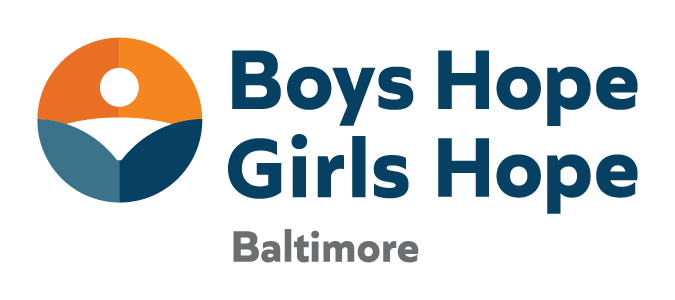About BHGH of Baltimore
One of 16 affiliates across the United States and Latin America, Boys Hope Girls Hope of Baltimore helps academically motivated middle and high school students rise above disadvantaged backgrounds and become successful in college and beyond.
Our goal is to graduate young people who are physically, emotionally and academically prepared for post-secondary education and a productive life, breaking the cycle of poverty. BHGH of Baltimore utilizes the following elements to achieve our mission:
- Academic excellence
- Service and community engagement
- Family-like settings to cultivate youth empowerment
- Long-term and comprehensive programming
- Faith-based values
- Voluntary participant commitment
"Because of Boys Hope Girls Hope, I have traveled the world, networked with various important people and have been a part of a brotherhood. My time here has truly helped me grow as a person so that I can help others.”
Joshua, Scholar
Our Mission
To nurture and guide motivated young people in need to become well-educated, career-ready men and women for others.
Our Vision
Our vision is that our scholars reach their full potential and become healthy, productive life-long learners who:
Adapt to an ever-changing world | Thrive in the face of obstacles | Generate a positive ripple effect in their families, work places, and communities
-
ACADEMIC FOCUS
We believe in the transformative power of education to develop lifelong learners using:
• Strengths-based, positive youth development approaches
• Practical preparation for careers to sustain one’s self and family
• Exposure to diverse opportunities that enrich one’s life and enhance learning
• Scholarship incentives encouraging and maximizing self-motivated learning -
SERVICE AND COMMUNITY ENGAGEMENT
We believe in the Jesuit-inspired, values-centered hallmark of building “persons for others” by:
• Developing character through service learning activities related to social justice and civic responsibility
• Educating those at every level of our organization in cultural competence
• Seeking collaborative partnerships to enhance our mission -
FAMILY-LIKE SETTINGS TO CREATE A SENSE OF BELONGING
We believe youth derive their energy and sustenance from exposure to nurturing environments that provide:
• Inclusion in a loving community that meets youth where they are but sets high expectations
• A feeling of “being home,” with residential care as needed
• Strong and supportive developmental relationships with adult mentors and peers
• Stability, structure, and individualized guidance in small settings
• Modeling of positive values -
LONG-TERM AND COMPREHENSIVE COMMITMENT
We believe an enduring relationship with youth holds the most promise for attaining positive outcomes by:
• Intervening early to support scholars from adolescence through college graduation and beyond
• Offering a holistic spectrum of programming that evolves with the age and needs of youth
• Providing ample opportunities for youth to develop social and emotional learning skills -
FAITH-BASED VALUES
We believe that a loving God cares about the life of every individual and we manifest this belief by:
• Focusing on those most in need of our services
• Respecting, serving and engaging people from all faith traditions
• Fostering spirituality and an active faith life as essential elements of healthy personal development
• Helping youth develop a moral compass based on universal principles -
VOLUNTARY PARTICIPANT COMMITMENT
We believe in the motivational power of selfselection into the BHGH program because:
• Parents and Scholars share a vision for a better future
• Scholars elect to invest in themselves and are empowered to join
• Families value and trust in a working partnership with BHGH
• BHGH serves bright, capable young people who are motivated to overcome obstacles to reach their potential
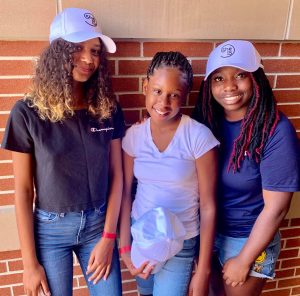
Our Local Impact
BHGH of Baltimore History
1977
BHGH Founded.
Father Paul Sheridan started Boys Hope Girls Hope in St. Louis, Missouri.
2002
Boys Hope Girls Hope of Baltimore founded.
Boys Hope Girls Hope opened in Baltimore and was housed in the convent of Our Lady of Pompei Church in the Highlandtown neighborhood of Baltimore.
2007
 Boys Hope finds a permanent home.
Boys Hope finds a permanent home.
Founding Board Members of BHGH purchased a lot in Northeast Baltimore and built the boys home.
2010
Girls House Was Built
With the generosity of the television program, Extreme Makeover Home Edition, the girls home was built.
2012
Boys Hope’s First College Graduates
Three original Boys Hope Scholars become the first college graduates from the Baltimore program!
- Marc Franklin – Boston College
- Michael Franklin – Haverford College
- David Yeager – Bachelor’s UMBC and Master’s Morgan State 2014
2017
Boys Hope Girls Hope of Baltimore Celebrates 15th Anniversary!
2017
Boys Hope Girls Hope International Celebrates 40th Anniversary!
Leadership
The Boys Hope Girls Hope of Baltimore Board of Directors and staff leadership collaborate to ensure mission fidelity, financial stewardship and transparency. This team of professionals is committed to continuous learning, effective programming and improvement through impact evaluation and innovation.
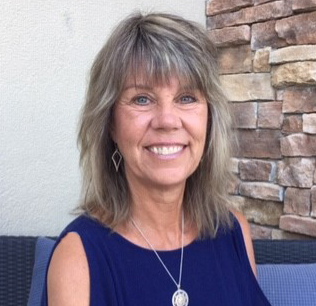
Arlene Hackbarth
Executive Director
Boys Hope Girls Hope of Baltimore is pleased to announce the appointment of Arlene Hackbarth as the organization’s Executive Director. Arlene has a passion for service, coupled with extensive expertise in adolescent development, residential programming and non-profit leadership. A long-time resident of Baltimore, Arlene Hackbarth is a graduate of Loyola University. She is a licensed professional counselor (LCPC) with more than 35 years of experience, including leadership positions at The Baltimore Station, as well as Catholic Charities.
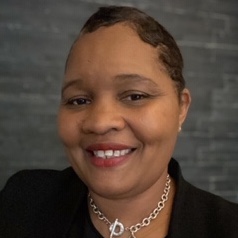
Demetria Jackson
Program Director
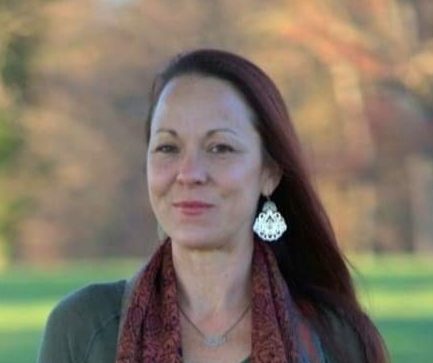
Kiley Dare
Administrative Coordinator
Board of Directors
Advisory Board
David Robinson, Chair & Finance Committee
Senior VP of Regional Sales
SunTrust, Now Truist
John Goles, Vice Chair
Senior VP Wealth Management
Janney, Montgomery Scott LLC
Matthew Schofield, Esq., Board Treasurer
Associate
Venable LLP
Jaclyn Pavelec-Ceesay, Secretary / Event Committee
Director of Marketing/Communications
Maxim Healthcare Services
Tim Barger, VP-Interim Staffing Solutions
The Greeley Company
Rodney Baylor, Development Committee
Vice President, Client Services
GeneDx, Inc.
Gina Campbell, Program Committee Chair
The Campbell Foundation
Jacqueline Crosby, Development Committee
Director CMADS Customer Service at CareFirst
CareFirst BCBS Maryland
Shawn Dekker, Development Committee Chair
Director
Albertsons Company
Andrew Hilger, Past Chair & Development Committee
President (retired)
Allegis Group
Bryce Legg, Development Committee
Senior Vice President
Baird
Ray McLaughlin, Former Treasurer/ Finance Committee
Managing Partner
AltaVista Strategic Partners
Tanya M. Robinson, Development Committee
Executive Director of Medicare
Kaiser Permanente
Matthew J. Youssef, Esq., Development Committee
Partner
Niles, Barton & Wilmer, LLP
Larry Elias Jennings
James j. Railey
Mike Dunn
Kevin P. McCarthy
Barry Herman
Richard Zink
The Need We Address
Prior to joining our program, our scholars’ circumstances include environmental barriers that make it difficult to concentrate on achieving their goals. The relationship between educational failure and poverty creates a vicious cycle that affects too many children in our communities and negatively impacts our entire society.
- Twenty-one percent of children in the US live in poverty (Census Bureau, 2014)
- Children born into poverty are six times more likely to drop out of school (Cities in Crisis, 2008).
- The longer a child lives in poverty, the lower their overall level of academic achievement (Guo and Harris, 2000).
- Children from families in the highest income quartile are 8 times as likely to earn a college degree that those from the lowest income quartile (Pell Institute and Penn Ahead, 2015).
- In 1980, college graduates earned 29% more than those without. By 2007, that gap grew to 66% (Baum & Ma, 2007).
- The costs to United States society are significant in terms of economic productivity, tax revenue, health care over-utilization, parental attention to children’s educational development, civic engagement, and volunteerism (Baum & Ma, 2007).
- According to CEOs for Cities, every one percentage point increase in adult four-year college degree attainment adds an additional $763 to per capita income per year (One Student at a Time, 2013).
- Cohen and Piquero (2009) monetized the cost to society over the course of a “negative outcome” child’s lifetime as follows: High School Dropout = $390,000 - $580,000, Plus Heavy Drug User = $846,000 – $1.1 Million, Plus Career Criminal = $3.2 - $5.8 Million.
